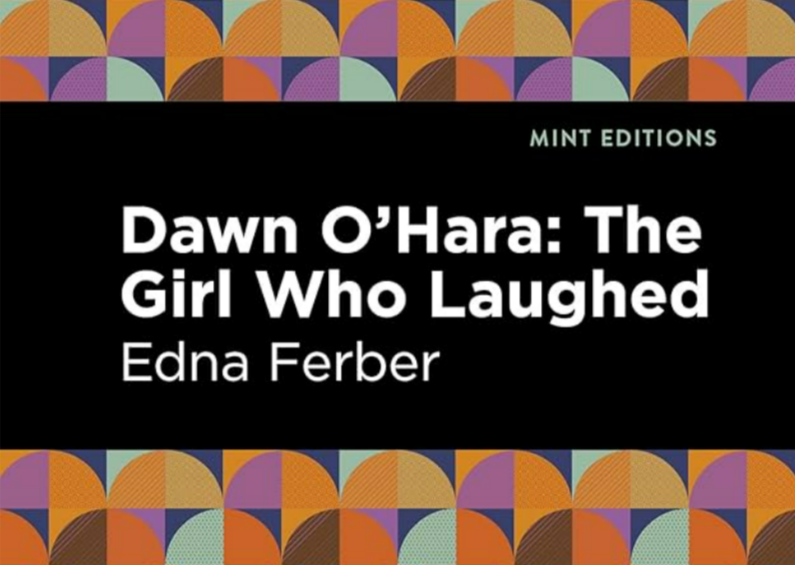CHAPTER XI ‑Dawn O’Hara: The Girl Who Laughed
byCHAPTER XI – Dawn O’Hara: The Girl Who Laughed begins with the lingering silence left by Von Gerhard’s absence, a distance made heavier by Dawn’s last emotional outburst. Yet, Christmas morning surprises her with an abundant bouquet of roses—dozens of fragrant blossoms from him, filling her modest room with unexpected joy. Rather than keep them to herself, she shares the flowers with her boardinghouse companions, scattering beauty throughout the rooms and spreading the warmth she feels inside.
This gesture revives Dawn’s holiday spirit, a welcome change from the solitary Christmases of her past. Her laughter and lighthearted teasing return as she plays the role of gift-giver to the Spalpeens, choosing presents with a mix of care and humor. She knows their letters will be filled with gratitude and misspellings, yet treasures them already, showing how deeply rooted her affection remains despite distance.
Underneath the festive distractions, a deeper truth surfaces—the growing ache she feels toward Von Gerhard. His presence, or lack thereof, shapes her days more than she’s ready to admit, though she hides this behind her work and clever retorts. Dawn reflects on how female journalists must wear emotional armor in public, yet privately wrestle with doubts, heartbreak, and loneliness like anyone else.
An unexpected walk with Von Gerhard on New Year’s Day rekindles a connection they’ve both been guarding. Their exchange begins with simple wishes for the new year, but quickly turns toward something more revealing—shared disappointments, confessions about their weariness, and a quiet hunger for comfort that neither can fully disguise. The cold air seems to pull their guard down, and before long, the subject of Dawn’s work, her emotional exhaustion, and her fear of future loneliness all spill out.
Von Gerhard listens with calm intensity, never pushing, always present. Dawn, defensive yet honest, jokes about his marrying a traditional German frau, hinting at the insecurity that’s taken root inside her. Her words are light, but her meaning is clear—she feels unfit for the life she imagines he should have, a life far from the messiness she brings with her.
His reaction doesn’t match her fear. Instead of laughing it off or offering politeness, Von Gerhard speaks plainly, declaring his love without hesitation. The conversation that follows is not dramatic but deeply human—filled with pauses, glances, and the quiet recognition that what they feel can no longer be pushed aside.
The moment is tender and vulnerable, both a confession and a reckoning. For the first time, they speak not as colleagues or passing friends, but as two people who have carried quiet affection through shared moments and unspoken words. There is no promise, no demand—just a mutual understanding that something real exists between them, despite the complications.
Their walk ends not with a kiss, but with closeness, a shared silence that says more than any gesture. Dawn feels both relief and terror, knowing that love, once spoken, cannot be easily forgotten. Yet she also feels something unexpected—peace. For all the uncertainty ahead, there is clarity in the truth finally spoken aloud.
Later that night, Dawn replays their conversation in her mind, finding in it a strange reassurance. Her life, defined for so long by survival and guarded optimism, now holds the possibility of something gentler. The reality of her situation with Peter Orme still looms, but for the first time, her heart allows itself the thought of happiness—not now, but someday.
The chapter skillfully captures this emotional complexity without ever losing Dawn’s sharp wit or emotional self-awareness. Her resilience remains intact, but it now coexists with vulnerability, showing a woman who is learning that strength doesn’t mean silence. Through humor, reflection, and reluctant hope, Dawn’s voice remains as compelling as ever, drawing the reader into the tender spaces between love and self-preservation.
This chapter, nestled within the cheer of the holiday season, becomes more than a turning point in a relationship. It is a portrait of emotional courage—a woman beginning to allow herself the possibility of love again, not in fantasy, but in flawed, beautiful truth.

